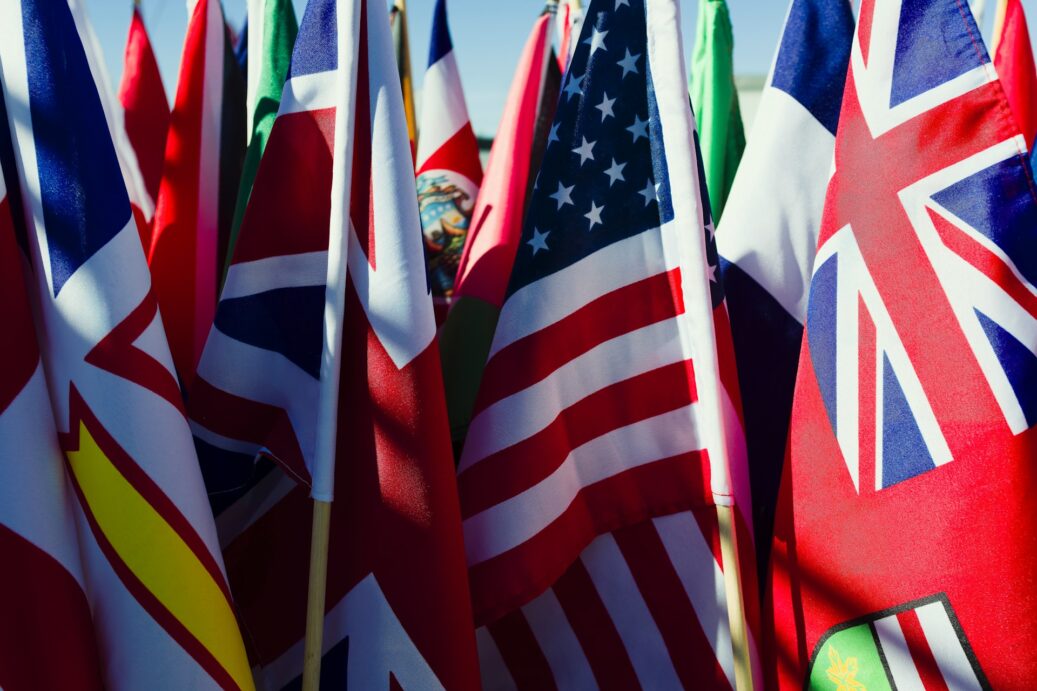Should a Christian man love his country?
Short answer: Of course.
(With a great big Jesus-centered “but…”)
As for the longer answer:
I. Am. Canadian. (Hey Canadian men—remember this guy? Beer commercial aside, this ad caused a patriotic fervor in the early 2000s!).
And I am very grateful for my country. I am blessed beyond measure here, and I thank God for it.
Canada is known for its endless opportunities, humanitarian work, democratic rights and freedoms, diplomatic peacemaking around the globe, medical breakthroughs, human rights advancements, foreign aid, social programs for the struggling, and, oh my goodness, universal healthcare.
I love all of these things about my country, and in that sense, yes, of course—a Christian man should love his country.
However, we must also honestly say that our countries have many skeletons in their closets.
In Canada (as in all countries), sins from our past have led us to where we are today. Cultural genocide, legal racism, slavery (not just an American issue!), sexual immorality, violence, broken contracts, corrupt leaders, greed, and more. Our dismissal of Scripture and the way of Christ has brought about bad things, to be sure.
I don’t love these things about my country at all.
Now, of course, I am a sinner, as is every reader. I have a few skeletons in my own closet, and I certainly would not wish to be judged entirely by my past. In fairness, we should have some grace for past national sins, acknowledging that we didn’t commit them.
But we must also note that not all of our country’s sins are in the past. Many things that Scripture forbids are perfectly legal today. Our culture celebrates things that surely grieve God’s heart.
And while it’s easy to think about certain obvious hot-button social issues, there are also significant matters relating to money, power, class, race, and politics that are contrary to the way of Christ.
Do Christian men love this about their country?
We shouldn’t.
But other than a few issues like abortion, many are silent on such biblical matters.
Then there is the sticky challenge of patriotism.
Every state demands it. We are indoctrinated young. Our entire culture revolves around government and politics.
Political discussions, debates, and divisions dominate our news cycles, social media feeds, conversations, and thoughts.
I would suggest that, in general, politics and government demand an ungodly amount of our attention.
Many Christians share and post about politicians, political positions, government issues, and their anger at those “on the other side” significantly more than they share Jesus and His Gospel.
I would suggest that, in general, politics and government demand an ungodly amount of our attention.
Social media feeds are full of opinions on earthly matters in earthly kingdoms with earthly leaders…all of which will pass away.
We cannot avoid all matters of earth, of course. Earth is where we live.
But Jesus and the early Church lived under a tyrannical empire that sought to suppress the Gospel, limit religious freedom, jail and torture dissidents, and which ultimately killed Christ, most of the apostles, and many early church members.
Interestingly, Jesus and the apostles rarely talk about it.
Life under Roman rule was brutal for the faithful. There was persecution, prison time, torture, violence, and martyrdom.
And in the writings of the New Testament, these earthly kingdoms simply don’t come up very often.
Jesus and His apostles were too busy being consumed by an entirely different Kingdom.
First and foremost, we are citizens of that Kingdom (Philippians 3:20).
It is the Christian man’s top priority by infinity. Our earthly nation shouldn’t even come close.
We must be very careful to guard our hearts. Cultural beliefs can overwhelm us and suck us in, even (especially?) when they are contrary to the way of Christ.
Jesus and His apostles were too busy being consumed by an entirely different Kingdom. First and foremost, we are citizens of that Kingdom (Philippians 3:20).
Patriotism easily becomes idolatry. It is designed that way. The powers and systems of this world demand allegiance, and we are taught to give it to them from pre-school onward. To not give it is to invite anger and consequence.
But our allegiance is ultimately to Christ. Our adoration belongs to Him. Our attention belongs to Him. Our lives revolve around Him, and not our nation, not our leaders, not any political party or worldly ideology.
I am very grateful for my country, but it should not receive the majority of my attention or my devotion.
If our conversations are dominated by talk of the country and its leaders, and less about the Kingdom and its King, then we need to reprioritize.
If our free time reading, scrolling, and watching is consumed with earthly politics more than Kingdom matters, we need to adjust.
If our social media posts talk about secular things more than Jesus Christ, we need to make some changes.
The issue is not really about whether a Christian man can love his country; of course he can. If “God so loved the world,” it means He loves our country and gave Himself for it (John 3:16).
The issue is more about where our country sits in our hearts.
If we can love our land while honestly acknowledging its sin without excuses and work towards holiness and healing, then good.
If we can love our land without compromising our commitment to Christ and His Kingdom, then good.
If we can love our land without being corrupted by its values contrary to Scripture, then good.
If we can love our land without falling prey to the idolatrous side of patriotism, then good.
If we can love our land without letting its politics become consuming, dominating our thoughts and conversations more than the Kingdom, then good.
If we can love our land by praying for it regularly, seeking for God to build His Kingdom here on earth, then good.
So with gratitude, we put our country in its proper place, well below God’s Kingdom in our hearts, time, and devotion.
And we always, always seek first the King and Kingdom of Heaven and His righteousness (Matthew 6:33), and we let every other earthly matter pale in comparison to this Kingdom and its glory.
About


